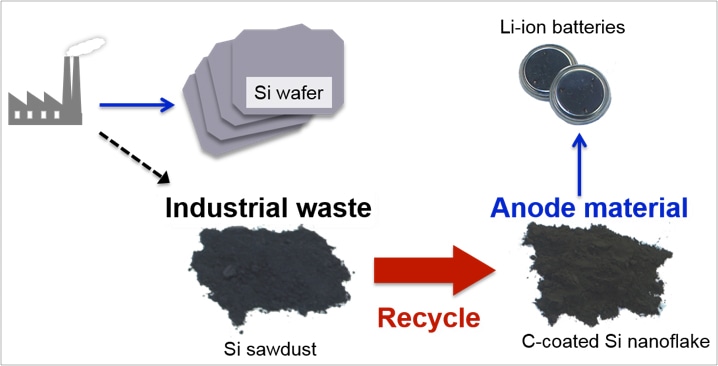Feb 22 2017
 This is a production process from silicon sawdust to lithium battery anode. Credit: Hirotomo Nishihara
This is a production process from silicon sawdust to lithium battery anode. Credit: Hirotomo Nishihara
A team of researchers have used waste silicon (Si) sawdust to develop a high performance anode material for lithium-ion batteries (LIBs).
The production of Si wafers with high purity (> 99.99%) is expensive and energy-consuming. It should be noted that in the final cutting process 50% of Si is in fact discarded as industrial waste. This waste amounts to 90 thousand tons a year on a global level, an amount that is considered to be large enough to meet the global requirements for anode materials for LIBs.
This was brought about in the project "Dynamic Alliance for Open Innovation Bridging Human, Environment and Materials" by a joint research team from Tohoku University and Osaka University. A mass-producible and practical method of recycling the unwanted Si sawdust into a high-performance anode material for LIBs was developed by the team.
The team discovered that high capacity and durable LIBs can be fabricated by the effective pulverization of the Si sawdust into Si nanoflakes (~16 nm in thickness) and the subsequent carbon coating. Until now, a constant capacity of 1200 mAh/g over 800 cycles has been achieved by a test half-cell. This capacity is considered to be 3.3 times as large as that of standard graphite (ca. 360 mAh/g).
The proposed method of material recycling is ideal for the mass production of high-performance LIB anode materials in a cost-effective manner. The researchers hope that this method will find increased practical applications in the battery industry.